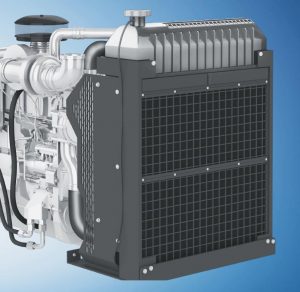Choosing the right coolant for truck fleets is not as simple as finding the cheapest price. FE (Fleet Equipment Mag) surveyed coolant experts around the industry about the most important things fleets should know when it comes to their coolant. Below is a brief guide to your trucks’ coolant, in the form of 10 coolant tips. Enjoy!

10 Tips
- First things first: know what kind of coolant your truck OEM recommends. If you’ve bought a used truck, you’ll want to know what coolant the previous owner used.
- There are quite a few different types of coolant. The color is a good indicator. TMC recommends purple for fully formulated coolants, and red for extended life coolants.
- Don’t mix coolant types in the same truck! “The problem with topping off a fully formulated cooling system with extended life coolant is you’re diluting the additive technologies in both products, and in this case they don’t work together to fight corrosion,” says Stede Granger, OEM service manager for Shell. “So, as you add more extended life coolant, you’re diluting the amount of additive you have from the fully formulated conventional coolant. Mixing the two coolants will result in not enough additive from either to protect the engine, which could result in engine failure.”
- Darryl Purificati is the OEM technical liaison for Petro-Canada Lubricants. He recommends pre-mixed solutions to ensure concentration and consistency is correct.
Coolant Quality Matters
- Is the coolant certified? Does the coolant feature virgin or recycled materials? (Mark Alexander, director of product management for Old World Industries). Additionally, it should comply with minimum requirements for heavy-duty coolant. Refer to the appropriate ASTM, TMC and SAE specifications/recommendations.
- “If you’re buying bulk (unpackaged) coolant, be sure to include specific instructions regarding coolant quality during transit and delivery.” This recommendation is from Lauren Lewis. Lauren is the senior technical support specialist of coolant and chemical technology for Cummins Filtration. “Be clear about your requirements for cleanliness, verification of product type, and so on.”
- Dan Holdmeyer, industrial and coolants brand manager at Chevron, recommends finding out whether you need nitrite or nitrite-free coolant. Equally important is whether you need to condition any new radiators.
- Holdmeyer also suggests determining whether the entire fleet’s coolants should be consolidated and/or replaced. In other words, should all of your trucks use the same coolant? If so, you’ll need to follow the right procedures.
- When switching coolant brands or types, consider the end-goal. Colin Dilley, VP of technology for Prestone, recommends asking: what am I trying to achieve with my coolant change?” “Coolant is often taken for granted and the financial return on investment for it is overlooked,” he says. “Coolant is designed to do one thing: keep the temperature of the engine at an optimal temperature so the engine is the most fuel efficient and produces the least amount of emissions. To perform in this manner, the coolant must do two things well: (1) transfer heat from the engine and (2) keep the cooling system clean by preventing and eliminating future corrosion for the life of the coolant so it works as it is designed.”
Last, but not least…
- Switching from one type of coolant to another is not easy. Draining and replacing engine oils is common procedure. This rarely happens with coolant, as it’s both costly and difficult to do so. So if you do want to switch your fleet over to a different type of coolant, you need to be sure to follow the appropriate steps, working with your coolant supplier to do so, according to Shell’s Granger. Your coolant supplier may offer products that help with this; in Shell’s case, Granger says, that would be Shell Rotella ELC correction fluid, which brings up the additive level in the existing coolant to the level it needs to reach to provide the expected corrosion protection in the cooling system.
Coolant for Truck Fleets – Additional Resources
Read more coolant information from FE in our related story, “Keep the summer sun from overheating your engines.”
Sign Up for Exclusive Blog Content
"*" indicates required fields
